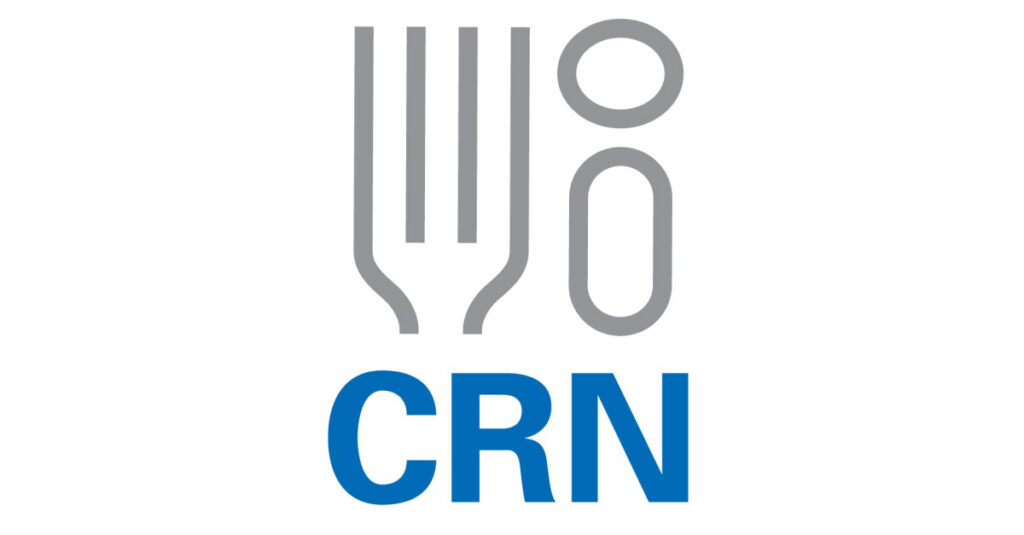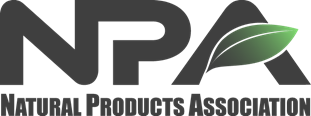Americans could lose access to N-acetyl cysteine (NAC) supplements in 2022, unless the nutrition and dietary supplements industries can prove to the Food and Drug Administration that this glutathione precursor was in widespread use as a supplement or food ingredient prior to the mid-1990s.
Last year, the FDA made clear that it views NAC as a pharmaceutical ingredient. In a volley of warning letters to companies marketing NAC as a hangover remedy, the agency stated that because NAC was approved as an inhaled drug in 1963, it is by definition excluded from the category of dietary supplements.
The sale of pharmaceutical ingredients as supplements is, generally speaking, illegal. But the FDA has yet to take the decisive step of formally banning NAC in supplements.
Mucomyst, Mead Johnson’s discontinued drug, was an inhaled form of NAC used primarily to treat obstructive lung disease. An oral NAC drug was approved in 1985 for the emergency treatment of acetaminophen (paracetamol) toxicity.
“This is an All-Hands-On-Deck situation.”
–Larisa Pavlick, VP of Global Regulatory Compliance, United Natural Products Alliance
For decades, NAC has also been available in supplements. There are well over 1,100 NAC-containing non-Rx products on the market, typically sold for liver health, detoxification, antioxidant activity, and immune system support. The ingredient is very safe, and until the June 2020 warning letters, it seemed the FDA had no issues with it.
FDA’s move sent shockwaves through the natural products industry, as well as in holistic and functional medicine circles. Though the warnings were limited to hangover products, the impact was greatly amplified when Amazon—citing the FDA’s position that the ingredient is a drug–banned the sale of all NAC products on its commerce platform.
In June 2021, the Council for Responsible Nutrition filed a Citizen Petition urging the FDA to reverse its stance, and to “revert to its longstanding policy of allowing manufacturers to market products containing NAC as dietary supplements” without obstruction. The Natural Products Association (NPA), another industry trade group, followed suit with a similar Citizen Petition in August.

CRN’s leaders had several meetings with the FDA since the 2020 warning letters, and claims that the agency “is considering CRN’s position.” But the regulators have given no deadline for resolution of the issue. Meanwhile, product sales have languished.
Request for Information
In November, just before Thanksgiving, FDA issued a formal request for information on the past use of N-acetyl-L-cysteine (NAC) in products marketed as dietary supplements.
If the industry can prove NAC was broadly used in supplements prior to the Dietary Supplements Health and Education Act (DSHEA) in 1994, the substance would qualify as an “old dietary ingredient,” and would be exempted from the prior drug exclusion.
The deadline for submission of all evidence to support that position is January 25, 2021.
“This is an All-Hands-On-Deck situation,” says Larisa Pavlick, Vice President of Global Regulatory and Compliance for the United Natural Products Alliance (UNPA), another industry trade organization working actively to get FDA to reverse course.
“Is there documented history of use? We believe so,” says Pavlick. But she acknowledged that proving it will be a challenge.
If the supplement and food industries are unable to prove broad use of NAC prior to 1994 , the FDA will face a hard decision: formally designate NAC as a drug, and ban its use in supplements, or fall back to the prior status quo and permit unrestricted sale of NAC products.
DSHEA became law in 1994, during the pre-internet era and before online archiving became commonplace. Much of the required documentation will likely be in paper form—old nutrition catalogs, manufacturing spec sheets, lab testing data, freight bills indicating interstate commerce, old product labels (if they have expiration dates). It’s the sort of stuff few people—even the most stalwart nutrition industry veterans—have at their fingertips.
“All Hands on Deck”
Finding, vetting, and aggregating documents on a tight deadline will not be easy. But Pavlick says UNPA and other industry trade groups have made this a top priority.
UNPA is calling on physicians who use NAC to submit any evidence they possess indicating that NAC supplements were used clinically in the 1990s.
If you have material to submit, contact Larisa Pavlick directly at: larisa@unpa.com
The American Association of Naturopathic Physicians, representing the nation’s NDs and NMDs, has joined the effort to rescue NAC from regulatory exile, and ensure that this valuable nutrient remains widely accessible.

Though the FDA has not officially banned NAC supplements, the effect of its new position—and especially Amazon’s response to it—has definitely hobbled sales.
Pavlick noted that in November 2020, there were 718 NAC-containing products listed on Amazon’s online shelves. In December 2021, seven months after Amazon’s ban took effect, all are gone. Simply put, it is not possible to purchase NAC on Amazon anymore.
For many supplement companies, Amazon sales represent between 40% and 60% of total revenue. The purge of a popular product category like NAC has had significant fiscal consequences.
Unclear Motives
The reasons for FDA’s sudden concern about NAC are unclear. It is definitely not a safety issue. After decades of widespread use, there are no reports of serious adverse effects associated with NAC supplementation, even at high doses.
On its webpage devoted to Dietary Supplements in the Time of COVID-19, the National Institutes of Health has stated that, “No safety concerns have been reported for products labeled as dietary supplements that contain NAC.” The FDA did not cite any safety problems in any of its NAC-related warning letters.
Though claims that NAC provides hangover relief are unsubstantiated, and the FDA was justified in chastising marketers making this pitch, the agency’s invocation of the prior drug exclusion is highly unusual in a situation like this.
In November 2020, there were 718 NAC-containing products listed on Amazon’s online shelves. In December 2021, seven months after Amazon’s ban took effect, all are gone.
Some within the natural products field believe that in targeting NAC supplements, the agency is doing the bidding of pharmaceutical companies.
There are now 19 clinical studies of NAC in the context of COVID care in the government’s Clinical Trials registry, including several looking at NAC-based drugs. This includes a high-profile study now underway at Memorial Sloan Kettering Cancer Center involving 84 high-risk patients with COVID, treated with inhaled or intravenous pharmaceutical forms of NAC. This trial is slated for completion in May 2023
Last year, a company called Orpheris—a division of Ashvattha Therapeutics— ran a phase 1 open-label clinical study of subcutaneous injections of “OP-101,” a Dendrimer N-acetyl cysteine. The company’s long-term vision for OP-101 is to develop it as a drug for childhood cerebral adrenoleukodystrophy (ccALD). Further, the company plans to “investigate the potential of OP-101 in other neurological diseases,” particularly Parkinson’s and aymyotrophic lateral sclerosis (ALS).
Despite these facts, it would be very difficult to prove that the FDA’s actions on NAC were directly influenced by drug companies.
NPA Sues FDA
Regardless of the motive, FDA’s actions have hurt NAC sales and limited consumer access. Many within the industry are crying “Foul!”
In early December, the Natural Products Association filed a lawsuit against the FDA in the US District Court in Maryland, seeking a permanent injunction against the FDA’s retroactive exclusion of NAC from the definition of dietary supplements.

NPA claims that in its application of the Prior Drug Exclusion standard, FDA acted unlawfully. The complaint calls the agency’s moves “arbitrary, capricious, an abuse of discretion, and contrary to law.”
The complaint states that, “NPA’s members have suffered harm as a direct and proximate result of FDA’s recent final agency actions concluding that the drug exclusion provision of DSHEA applies retroactively to NAC. NPA members who have been selling NAC for years, if not decades, have seen their sales dry up as result of having to preemptively pull products from the shelves by virtue of FDA’s unlawful decisions.”
It also points out that FDA has been denying export certificates for NAC supplements, precluding US distributors from marketing these products overseas
If NPA wins its case, the injunction would block FDA from taking regulatory action against manufacturers, distributors, or retailers of NAC-based supplements solely on the ground that the ingredient is a pharmaceutical.
Grievances & Grandstanding
There’s a note of irony in the suit, given that NPA’s CEO, Daniel Fabricant, PhD, was Director of the FDA’s Division of Dietary Supplement Programs from 2011 to 2014.
Fabricant contends that his former employer is way out of line on this issue. “This is government regulation run amok,” he said in a press release. “The FDA’s actions against NAC represent a reckless misuse of government resources and will do nothing to protect public health.”
He added that the “regulatory sneak attack” FDA has perpetrated against NAC could be used to eliminate other supplement ingredients such as L-carnitine, niacin, and CBD, which are currently available in supplement and prescription pharmaceutical form.
“The FDA has gotten this wrong at every step of the way, and we’ve been left with no choice but to seek relief from the courts.”

This is not NPA’s only fight with a federal agency. In November, NPA petitioned the US Court of Appeals to declare the Biden Administration’s vaccine mandate unconstitutional. NPA claims that national vaccine requirements preempt appropriate state laws, and place an undue burden on member companies by exacerbating labor shortages and employee conflicts at a time when many companies are already struggling.
Whether either of these NPA actions amounts to anything more than grandstanding remains to be seen. People familiar with the subject say it is likely the District Court will dismiss the NAC complaint on the grounds that the FDA has not taken any definitive action–such as a ban–against NAC, but merely issued warning letters to a handful of companies. These letters do not constitute “final actions.”
“The FDA’s actions against NAC represent a reckless misuse of government resources and will do nothing to protect public health.”
–Daniel Fabricant, PhD, CEO, Natural Products Association
The NAC issue has drawn the ire of some legislators. In October, Rep. Jeff Duncan (R-SC) sent a letter to the FDA demanding that regulators clarify their position on NAC, and cite any adverse events or other safety concerns that would warrant action to restrict sales. In August, Sen. Mike S. Lee (R-UT) had called on the FDA to hold a public hearing on the NAC issue, a request that so far, the FDA has denied.
A Critical Crossroad
The NAC warning letters are not the first time the FDA has invoked the Drug Exclusion Provision to retroactively regulate supplement ingredients. Over the years, it took similar action—to varying degrees of success–against vinpocetine, red yeast rice, vitamin B6 (pyridoxamine), and CBD.
But the move to curtail a popular and effective self-care modality in the midst of a raging pandemic, in the absence of any evidence of risk or harm, seems like a major misstep.

If the supplement and food industries are unable to prove broad use of NAC prior to 1994 (which is prior to the formal definition of the term “dietary supplement”), the FDA will face a hard decision: formally designate NAC as a drug, and ban its use in supplements, or fall back to the prior status quo and permit unrestricted sale of NAC products so long as marketing claims are scientifically valid and stay within the language of structure/function rather than disease treatment or prevention.
If the agency takes the hardline stance, it will be rightly criticized for unnecessarily banning a harmless, valuable, and accessible health aid for no discernable reason, and for harming American businesses at a time when so many are already struggling.
If it chooses the second path, FDA dilutes the future power of the “prior drug exclusion” clause and risks looking weak and indecisive.
Meanwhile, industry leaders are working hard to make the case for grandfathering NAC as a dietary ingredient.
“Our task is difficult — to reach back in time to find suitable records that would establish NAC’s use in dietary supplements, foods or medical foods. We sense FDA’s openness to find a resolution to the status of NAC, but this will depend on the amount and quality of evidence the industry provides,” says UNPA’s president, Loren Israelsen.
Holistic medical professionals and their patients have much to lose—or gain—in the outcome of this contention situation.
To share information on the historical use of NAC supplements in clinical settings, contact Larisa Pavlick, United Natural Products Association at: larisa@unpa.com
END







